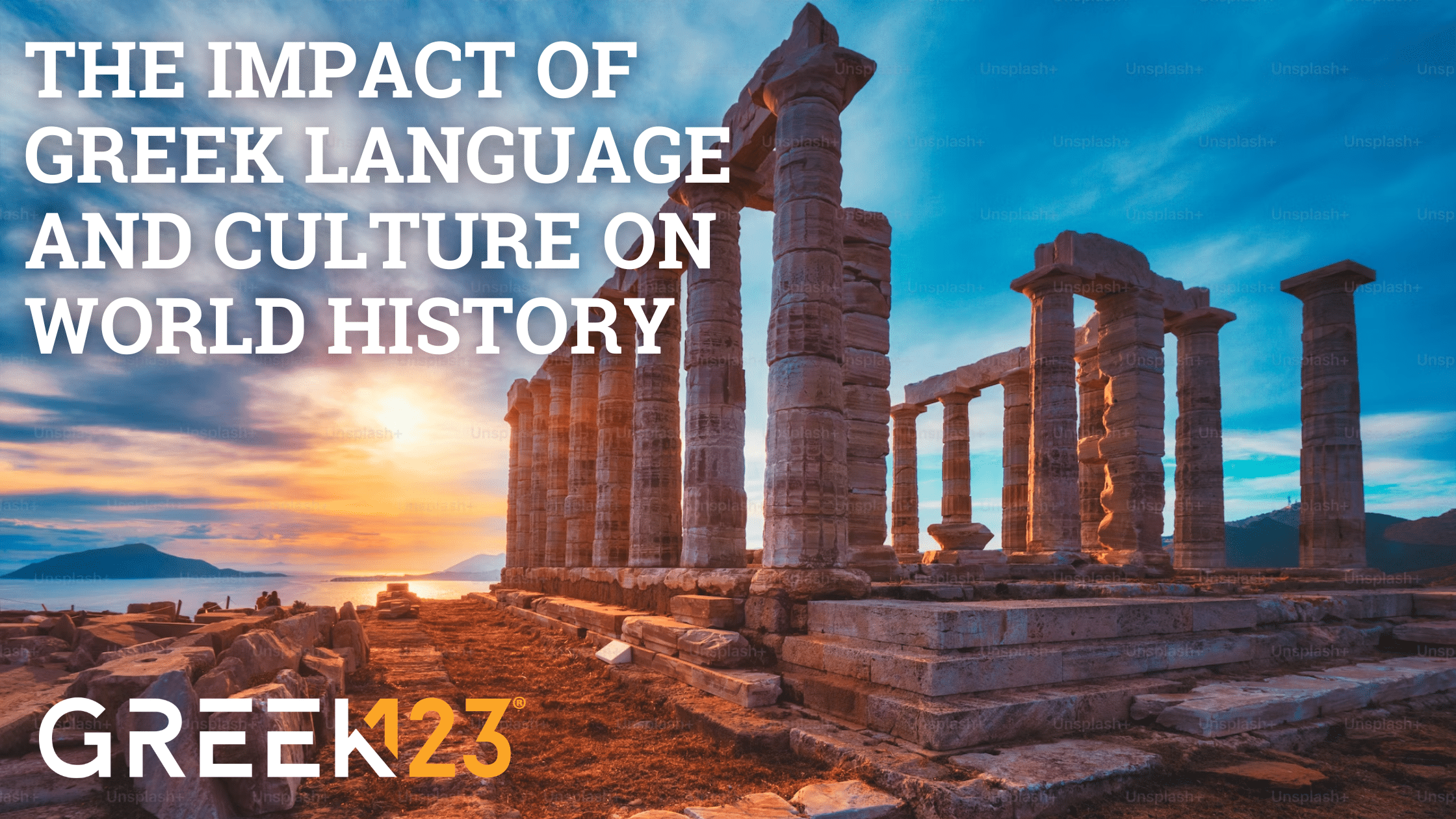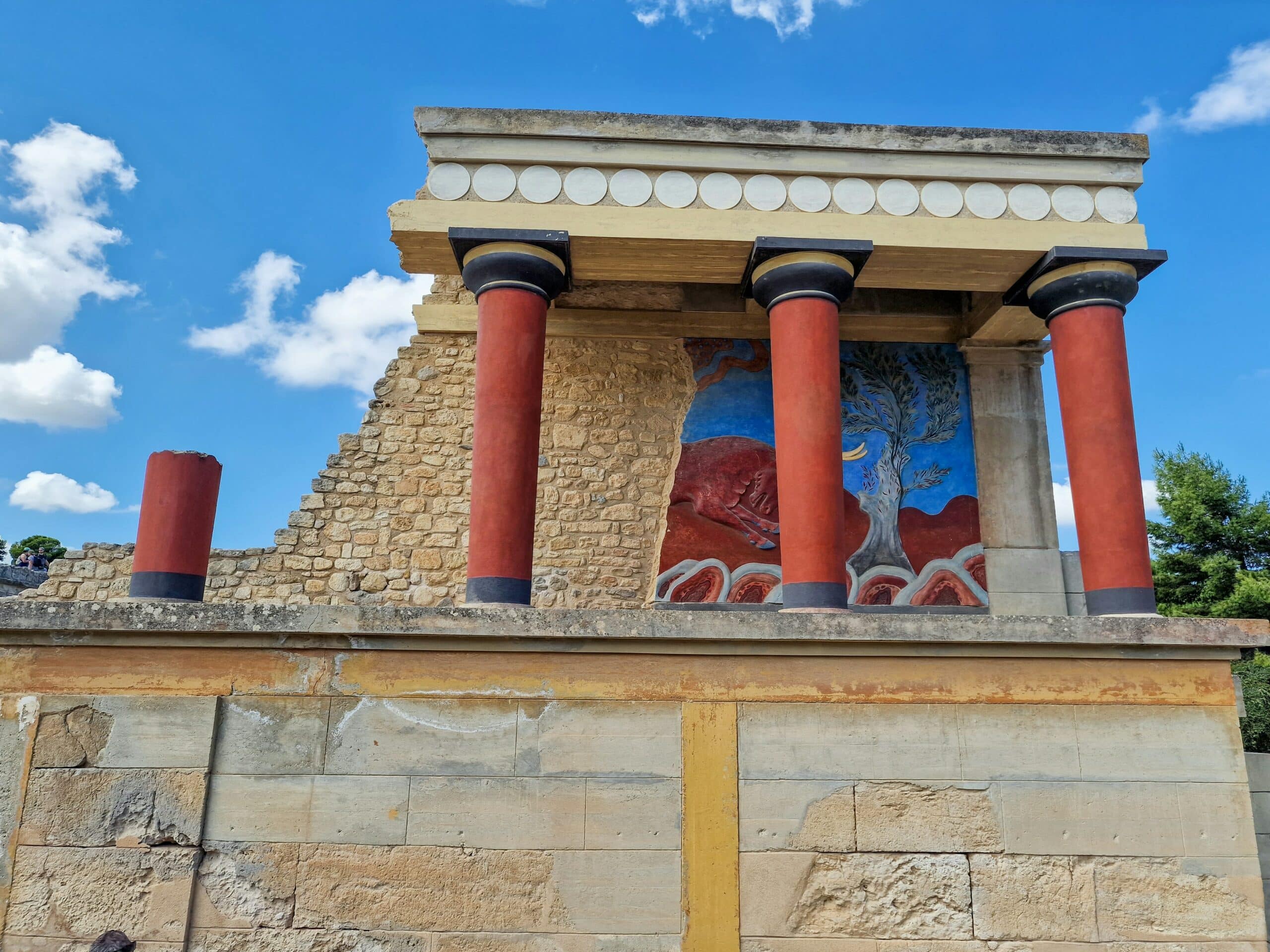
The Impact of Greek Language and Culture on World History
The Impact of Greek Language and Culture on World History
The legacy of ancient Greece is deeply woven into the fabric of human history and civilization. From the birth of democracy to groundbreaking philosophical ideas and timeless works of art, Greek language, philosophy, and culture have left an indelible mark on the world. In this article, we will explore the profound influence of the Greek language and culture on global history, highlighting key moments and figures that have shaped modern life.
Greek Language: the Lingua Franca of Ancient Knowledge
The development of the Greek alphabet was nothing short of revolutionary. Prior to its invention, many ancient civilizations relied on cumbersome pictorial or logographic writing systems, making written communication limited and often reserved for the privileged few. The Greek alphabet, with its 24 letters, introduced a phonetic writing system that assigned distinct symbols to individual sounds in the Greek language. This innovation had far-reaching consequences:
Standardized Record-Keeping: The Greek alphabet allowed for the standardization of written records. Instead of relying on intricate and context-dependent hieroglyphs or cuneiform, people could now express their thoughts and ideas more precisely and efficiently.
Preservation of Knowledge: The alphabet facilitated the preservation of knowledge. It enabled the transcription of various texts, including literature, scientific treatises, and philosophical works. Through the written word, ideas could endure beyond the lifespan of individual thinkers.
The Birth of Literacy: The simplicity and accessibility of the Greek alphabet played a pivotal role in increasing literacy. As more people learned to read and write, a broader segment of society could engage with common knowledge and participate in intellectual discourse.
The Latin Alphabet: Perhaps the most enduring legacy of the Greek alphabet is its influence on the Latin alphabet. The Romans, recognizing the effectiveness of the Greek writing system, adopted and adapted it. The Latin alphabet, still in use today across much of the world, owes its structure and many of its characters to Greek.
The Library of Alexandria: A Beacon of Enlightenment
The Library of Alexandria, founded in the 3rd century BCE in the Egyptian city of Alexandria during the Hellenistic period, was an unparalleled center of learning in the ancient world. It was a testament to the power of Greek language and culture to transcend borders and time:
Cultural Crossroads: Alexandria was a melting pot of cultures, and the library reflected this diversity. Scholars and intellectuals from Greece, Egypt, Persia, and other regions gathered there to exchange ideas and knowledge. The Greek language served as the lingua franca, enabling this intellectual cross-pollination.
Translation Efforts: The library’s scribes and scholars were devoted to the translation of texts from diverse languages into Greek. This monumental undertaking made knowledge from across the known world accessible to a wider audience, transcending linguistic and cultural barriers.
Preserving the Wisdom of the Ages: The library housed countless scrolls and manuscripts, ranging from scientific treatises to poetic works. Many of these texts were translations of earlier works, ensuring that the wisdom of ancient civilizations, such as Mesopotamia and Egypt, was preserved and passed down through the medium of the Greek language.
A Center of Scholarship: The Library of Alexandria nurtured some of history’s greatest thinkers, including Euclid, Archimedes, and Eratosthenes. These scholars conducted groundbreaking research and wrote in Greek, contributing to the advancement of mathematics, engineering, and geography.
Science and Philosophy: Pioneers of Thought
Greek philosophers and scientists, including Aristotle, Euclid, and Pythagoras, played pivotal roles in shaping the foundations of modern thought and inquiry. Their contributions in various fields were monumental:
Aristotle’s Comprehensive Philosophy: Aristotle’s extensive writings covered ethics, politics, biology, physics, and more. His systematic approach to knowledge with an emphasis on empirical observation laid the groundwork for the scientific method, promoting critical thinking and the rigorous investigation of the natural world.
Euclid’s Geometry: Euclid’s “Elements” was a groundbreaking work in geometry. Written in Greek, it remains one of the most influential mathematical texts in history. Euclid’s logical approach to geometry set a standard for deductive reasoning, a cornerstone of modern mathematics.
Pythagoras and Mathematics: Pythagoras and his followers explored the mathematical relationships of numbers, culminating in the Pythagorean theorem. The theorem, formulated in Greek, has applications in geometry and trigonometry and continues to be a fundamental concept in mathematics.
Philosophical Dialogue: Greek philosophers engaged in philosophical dialogue, using the Greek language to explore fundamental questions about existence, ethics, and the nature of reality. The dialectical method they employed encouraged critical thinking and the pursuit of truth through reasoned discourse.
Socrates: The Father of Critical Thinking
Socrates, often referred to as the father of Western philosophy, left an enduring legacy through his unique method of inquiry and dialectical approach:
The Socratic Method: Socrates is renowned for the Socratic method, a form of cooperative argumentative dialogue. Through a series of carefully crafted questions, he encouraged individuals to think critically and question their beliefs. This method, based on the pursuit of self-knowledge and the examination of one’s assumptions, laid the groundwork for critical thinking and logical reasoning.
Champion of Ethics: Socrates’ philosophy extended to ethics and moral virtue. He believed that virtue is knowledge and that ignorance is the root of all evil. By engaging in self-examination and rational inquiry, individuals could attain moral wisdom and live virtuous lives.
Trial and Legacy: Socrates’ unconventional ideas and persistent questioning of traditional beliefs led to his trial and execution in 399 BCE. However, his legacy endured through his students, notably Plato, who preserved and expanded upon his teachings.
Plato: the Philosopher of Ideas
Plato, a student of Socrates, went on to become one of the most influential philosophers in history:
Dialogues and Writings: Plato’s philosophical ideas are primarily conveyed through his dialogues, in which Socrates often plays a central role. Works like “The Republic” explored complex themes such as justice, governance, and the nature of the ideal state. “The Symposium” delved into the nature of love and desire.
Theory of Forms: One of Plato’s most enduring contributions is the theory of Forms (or Ideas). He posited that beyond the physical world exists a realm of eternal, unchanging Forms that are the true reality behind appearances. This metaphysical concept profoundly influenced later philosophical thought, called Idealism
The Academy: Plato founded the Academy in Athens, one of the earliest institutions of higher learning in the Western world. This academy became a center for philosophical inquiry and education, fostering the development of intellectual traditions for generations to come.
Aristotle: the Polymath of Ancient Philosophy
Aristotle, a student of Plato, made immense contributions to a wide range of fields:
Ethics and Virtue: Aristotle’s ethical philosophy centered on the concept of eudaimonia, often translated as “happiness” or “flourishing.” He believed that true happiness is achieved through the cultivation of moral virtues and the pursuit of excellence.
Systematic Inquiry: Aristotle’s works covered diverse subjects, including ethics, politics, metaphysics, biology, and natural sciences. His commitment to systematic inquiry and empirical observation laid the foundation for the scientific method. His writings on logic also provided the basis for formal reasoning.
Classifying Knowledge: Aristotle’s penchant for classification led to the development of his encyclopedic work, “Organon,” which organized knowledge into categories of logic and scientific inquiry. This systematization of knowledge profoundly influenced the organization of academic disciplines.
Culture: the Power of Greek Art and Drama
Greek culture produced enduring works of art and literature, demonstrating the depth of human creativity and expression. Notable cultural contributions include:
Classical Art and Architecture: Greek art and architecture, with their emphasis on proportion and balance, set the standard for aesthetics in the Western world. The Parthenon in Athens and the sculptures of Phidias exemplify the mastery of the Golden Mean of proportion.
Drama and Tragedy: Greek theater, with playwrights like Aeschylus, Sophocles, and Euripides, explored themes of fate, morality, and the human condition. Their plays, such as “Oedipus Rex” and “Antigone,” remain timeless reflections of human drama.
The Living Legacy of Greece
The impact of the Greek language, philosophy, and culture on global history and civilization cannot be overstated. It is a testament to the enduring power of ideas and the capacity of a single civilization to shape the course of human progress. The principles of democracy, rational inquiry, and artistic expression that originated in ancient Greece continue to resonate and inspire, reminding us of the profound and lasting influence of this remarkable civilization on our world. As we explore the depths of history, we find ourselves in debt to Greece for the intellectual and cultural treasures it has bestowed upon us, enriching our understanding of the past while guiding us into the future.
Related


